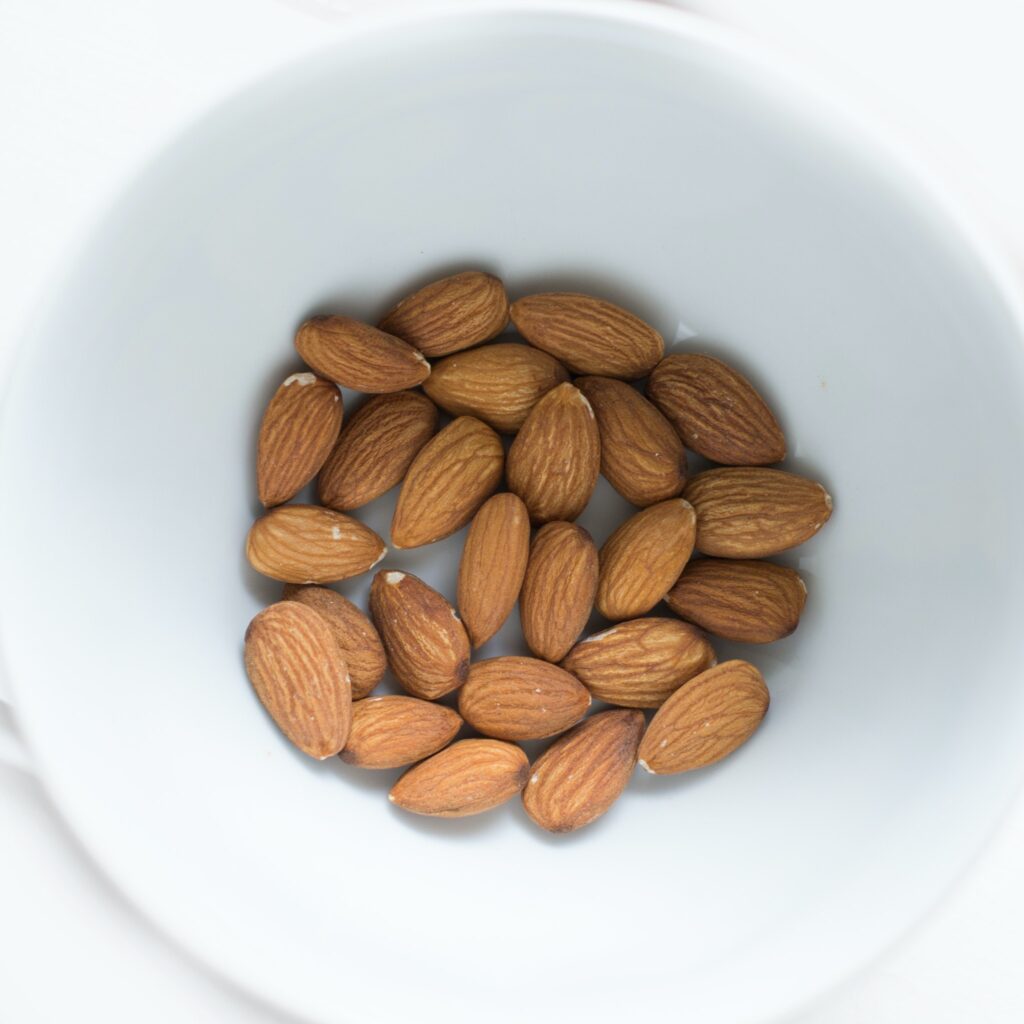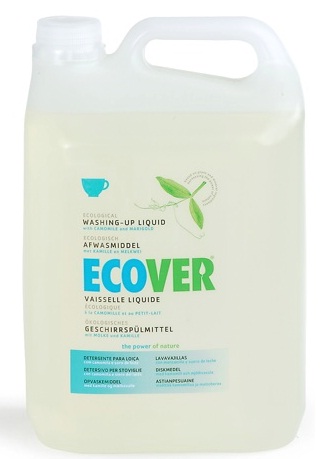I lived my whole life thinking I was allergic to almonds but never quite knowing for sure. I knew I’d been exposed to them by mistake in a snack bar years ago which contained nibbed almonds and I didn’t react.
At the time I continued to avoid them because I was too scared to risk it and worrying about cross contamination. Allergy blood tests recently confirmed – I am not allergic to almonds!
This blog explores the almond, what is it? How do you avoid almonds, hidden sources, cross reactivity and why I can eat almonds but not other nuts!

Now I wonder, have I ever been allergic to almonds? Or have I been following doctor’s advice and avoiding all nuts after my allergies to peanuts, cashews and walnuts were diagnosed. I knew that I reacted to every nut I’d ever come in contact with so I just erred on the side of caution and avoided them all.
There are some nuts I don’t think I have ever eaten; Brazil and Pecan nuts!
So despite being allergic to ALL the other nuts, almonds can now be my friends. I did some very careful reintroductions, starting with a tiny bit of almond milk on my hand, then on my lip. Nothing happened. I then tried a tiny bit of almond milk and again, I didn’t react.
Now I am drinking almond milk and eating almonds. But I am VERY careful! Some almond products could be unsafe due to cross contamination. We’ll come to that a bit later in more detail.
Just to add, I love almond milk and am just fascinated with how my body can differentiate and allow me eat almonds but be able to spot other nuts a mile off! A mere whiff of peanuts has my senses tingling and my body on high alert!
But maybe it’s not so crazy. I did a bit of research into what almonds really are.
What are almonds anyway?

Almonds or Prunus dulcis to give them their latin name, are the oval edible nutlike seed (kernel) of the almond tree, which grows in a shell. The almond tree is related to the peach and plum. So guys, they’re not actually nuts! They are technically known as a Drupe, not a nut
But neither are peanuts, they’re actually legumes. Go figure that one out. Although it has been discovered that the protein makeup of peanuts is very close to the rest of the nut family.
Understanding the origins helps us to understand why I might be able to eat almonds fine, but not other nuts.
Other nuts and cross contamination
Due to the way nuts are handled in the production plants where they are dried, cleaned, nibbed, hulled and packaged, there is a very large chance of cross contamination. Since almonds are farmed and treated very much like other nuts they are handled and processed in the same factories as other nuts. These large places may not have strict allergen safety proceedures so there could be traces of any other nut on any shelled and hulled almonds.
So with that in mind, I would only buy almonds still in their shell. And I have discovered that almond milk is safe.
But look at the packaging of any snacks, cakes, biscuits etc. that contain almonds and no other nuts and they will undoubtedly say ‘may contain nuts’ or a more specific, ‘may contain peanuts’ for example.
It’s frustrating but it’s just how it is. So I plan to experiment making my own nut butter when I have time.
Oral allergy syndrome
Almonds can also cross react for people who also get hay fever from birch pollen. Oral allergy syndrome (OAS) is less serious than a food allergy and symptoms are usually only affecting the mouth, causing itching, swelling of the throat. The reason this happens is because the birth pollen is very similar of molecules found in almonds. This is usually not a life threatening reaction and many people find that they can tolerate the food after it’s been cooked. Other trees which cross react with almonds include:
- Peach
- Plum
- Latex allergy can be related also
If you have any reaction that worries you and that spreads to affect more of you body that just your mouth seek medical advice. In rare cases OAS can cause anaphylaxis and become more severe over time.
Hidden sources of almond
Many people are allergic to almonds and they can be found hidden in lots of other foods and drinks. Here’s a list of things to watch out for:
- Many gins are distilled with almonds
- Peach schnapps
- Many skincare products may contain almond extract, oil etc.
- Marzipan
- Curries, particularly Korma, Peshwari Naan
- Chinese, Thai and Indian foods use almonds
- Amaretto and other liqueurs
- Bakewell tarts
- Almond paste, flavouring and essence can be used in cakes, biscuits, baked goods.
- Biscotti
- Frangipane
- Macaroons
- Eggnogg can be made with almond milk
- Some flavoured coffees
- Cereals and muesli
- Mortadella (an Italian sausage) can be flavoured with Almonds or Pistacios
Are almonds healthy if you can eat them?
So now that I can actually eat them, what will they add to my diet? I am obviously being very careful about what almond sources I eat. I can buy almonds on their shell and wash and deshell myself and almond milk is OK.
Almonds are rich in vitamin E, calcium, magnesium and potassium. Additionally, almonds are a significant source of protein and fibre, while being naturally low in sugar.
The are also antioxidants and can help reduce choloesterol.
A few sources also said that they were in the top 10 most healthy nuts and seeds, so if I was going to be able to eat one nut only, I’m pleased it’s this one.
The are good for shiny hair, can aid you towards better digestion, and are good for your skin, in many skin care products as they can help you maintain smooth skin. Check out Taste of Home’s 10 health benefits of eating almonds here.
Reported serious reactions to almonds
Almond allergy can be very serious for those who are allergic. I found this report where the takeaway owner assured the customer the dish, which usually contained almond powder, could be made safely without. However no effort was made to actually do this and the customer ended up in A&E. Read more here:
Takeaway customer with nut allergy cheats death after biting into pizza with almond powder
Are you allergic to almonds?
Are you allergic to almonds? Are you also allergic to other nuts? Or do you also react to foods in the almond family? I’d love to hear your stories on how you discovered your allergy, how you manage it and any hidden sources I’ve missed from here!
Photo by Keegan Evans from Pexels
References












Almonds are a fruit technically not a nut. Happy almond Cristmas xx jacquie B
Hi Jacquie, I am definitely having almonds in my Christmas this Covid! hahah. And so weird how we all think almonds are a nut… when they’re not! And since people are allergic to almonds, do we need another category for them? The Top14 includes peanuts and tree nuts, the I’m not sure almonds come under tree nuts, do they? Like you say they are a seed or fruit, but since they LOOK like nuts, they go in that category and clearly are allergenic.
I’m also very interested in almond allergy, as it doesn’t seem to be nearly as common as other nut allergies, and of course it gets used in so many different things that’s probably a good thing.
I try not to get too hung up on the nut vs fruit thing, it gets botanically quite complicated – you could argue that brazil, pistachio, pecan and walnuts are not “true” nuts either – what’s important (for us allergy people) is how are they connected to other foods and what else might you be allergic to. The science shows us that almond allergy can be due to sensitisation to “fruit like” proteins, and/or “tree nut/peanut like” proteins, so in that sense it does straddle to the world of fruit allergies (usually mild) and nut allergy (potentially severe).
Thanks Adrian, yes it’s all so fascinating. And it does help when trying to identify what you have reacted to understand these relationships. Like peanuts are not even a nut at all! These are just fun facts really and knowing what our bodies might react to far more important. A good point well made!